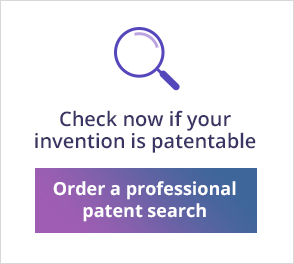The first step in the process of getting a patent protection on an idea is actually a question – Does your invention already exist?
Beyond the obvious business aspects (commercial novelty and exclusivity), the question whether your invention exists is critical when determining if and how you can get a granted patent on an idea. In order to explain the importance of this we should first determine what makes an idea patentable (i.e explaining the major conditions that, if met, can get an idea patented)

What makes an invention patentable – first condition – novelty
One of the main conditions given by patent protection laws is novelty – the invention must be completely new in order to qualify for patent protection. Originality is essential – you can’t get a patent on an invention if the invention is not new i.e. it was publicly disclosed in any way, by anyone, anywhere in the world prior to the submission of the patent application!
Public disclosure can come in any form or way – An existing patent, a published patent application, articles, books, existing products or even a newspaper interview or an internet post (if detailed enough).
A very common mistake of inventors and entrepreneurs is to rush and bring a new product idea to market (thus publicly disclosing their idea) and only then filing a patent application – only to discover the idea can’t be patentable by you or anybody else – thus preventing you from getting any legal protection in the future.
Another common mistake is to spend a great deal of time and money on drafting and filing a patent application, just to get a rejection letter from the patent examiner. A rushed, non-searched premature application does not only amount to wasting precious time and money spent on the application itself, but also causes business and financial damage and potentially risks the chance of ever getting your invention patented in the relevant market:
- It is important to remember that patents are territorial based – you have a limited time between the application filing date in the first jurisdiction, and the continued application in other countries and regions. Rejections and appealing processes might take time and eventually prevent any chance of getting a granted patent in relevant countries.
- Any delay in getting an idea patented might delay the whole production and marketing process and costing more money.
Can you get a patent protection on an idea that is based on existing technologies – Non obviousness
Another legal requirement that must be fulfilled in order to have a granted patent is called “Non obviousness” or “inventive step” or inventiveness.
Although the concept (and interpretation) can slightly vary from jurisdiction to jurisdiction (for example differences in US, UK and European patent laws) the main idea is the same –
In order to be able to obtain patent protection, an invention must differ from, in comparison to, existing products or technologies (i.e. an “inventive step). That difference cannot be minor or trivial but rather “not obvious” to a person skilled in the trade of the invention.
For example putting together two existing, widely used technologies (for example wi-fi and bluetooth) in one radio communication device may be considered obvious to a person skilled in the trade (radio technician or engineer) and therefore the idea is not patentable,
However taking two completely new technologies from two different fields (for instance radio communication and photography) and putting them together is one device used in a completely new field (for instance medicine) might carry an inventive step, making that idea patentable.
Can you get a patent protection on an idea that is not tangible such as a business method
Many patent laws (for example the US, UK and European patent laws) require that an invention contain industrial and technological applicability and utility. I.e. one can develop, manufacture & utilize the invention in the relevant industries.

An idea describing a method for doing business cannot get patented by itself. Only when combined with one or more technologies (electronic systems, computers, smartphones, electrical appliances etc.) the method idea can be patented.
As in the “Non obviousness” issue it is important to consult a patent professional on the various patent protection laws in each country or region.
Patentability search
In light of the above, the first step in getting an idea patented is search and research. As explained, rushing into drafting and filing a patent application, without any preliminary search, can not only cause a waste of time and money, but jeopardize any chance to bring a new product idea to market and get proper legal protection in each relevant country.
Self search is advisable but eventually it is important to conduct a patentability search via a patent search company, as widely recommended by patent authorities such as the US patent office (USPTO) and the European patent office (EPO).
It is crucial to remember that a patentability search done by a search company has great advantages over independent non professional searches –
- Professional patent searchers are highly trained and experienced in searches done in the extremely complicated technical and legal patent field.
- Patent search companies employ professional methodologies and tools (such as patent dedicated paid databases – which contain data and have search capabilities, far exceeding any free and open database).
- Legal knowledge and objectivity – Many inventors and entrepreneurs lack the basic legal knowledge and impartiality required to objectively examine and analyze search findings and determine their significance and implications on the chances of getting an invention patented.
Conclusion
Getting an idea patented and then commercializing and monetizing it (whether by selling or licensing the patent or by building a business that will bring the idea to market) is a long, complex, multi-step, time, energy and money consuming process.
A patentability search done by a patent search company is not only one of the fastest, cheapest and simplest steps in this process but also crucial to avoid the waste of money, time and energy, while helping you turn an idea from the initial stage to a granted patent protection and a product.

